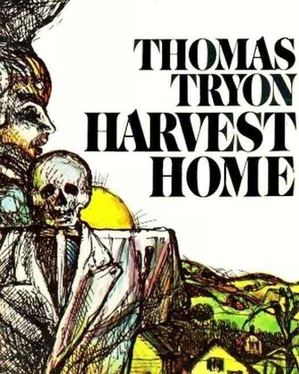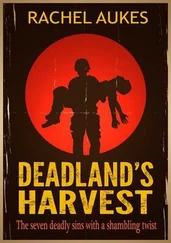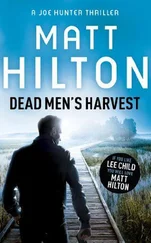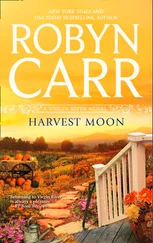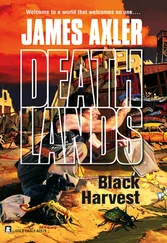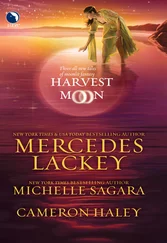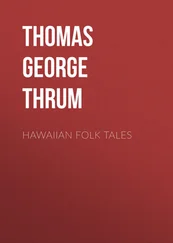Thomas Tryon - Harvest Home
Здесь есть возможность читать онлайн «Thomas Tryon - Harvest Home» весь текст электронной книги совершенно бесплатно (целиком полную версию без сокращений). В некоторых случаях можно слушать аудио, скачать через торрент в формате fb2 и присутствует краткое содержание. Жанр: Ужасы и Мистика, на английском языке. Описание произведения, (предисловие) а так же отзывы посетителей доступны на портале библиотеки ЛибКат.
- Название:Harvest Home
- Автор:
- Жанр:
- Год:неизвестен
- ISBN:нет данных
- Рейтинг книги:5 / 5. Голосов: 1
-
Избранное:Добавить в избранное
- Отзывы:
-
Ваша оценка:
- 100
- 1
- 2
- 3
- 4
- 5
Harvest Home: краткое содержание, описание и аннотация
Предлагаем к чтению аннотацию, описание, краткое содержание или предисловие (зависит от того, что написал сам автор книги «Harvest Home»). Если вы не нашли необходимую информацию о книге — напишите в комментариях, мы постараемся отыскать её.
For Ned and his family, Cornwall Coombe was to be come a place of ultimate horror.
Harvest Home — читать онлайн бесплатно полную книгу (весь текст) целиком
Ниже представлен текст книги, разбитый по страницам. Система сохранения места последней прочитанной страницы, позволяет с удобством читать онлайн бесплатно книгу «Harvest Home», без необходимости каждый раз заново искать на чём Вы остановились. Поставьте закладку, и сможете в любой момент перейти на страницу, на которой закончили чтение.
Интервал:
Закладка:
As Sophie went on the errand, Maggie passed me with a tray of empty coffee cups, and I followed her into the kitchen.
“Ned-hi!” she said gaily, brushing my cheek with her lips. “I haven’t had a chance to talk with you. You’re drawing- let’s see.”
I showed her the sketch of Sophie. “Oh, Ned, it’s lovely.” It was not, I felt, an offhand compliment. She carefully studied the head, which in a rough, sketchy way captured something of Sophie’s glowing character. Maggie rinsed the glasses and one by one set them on the drainboard. I pocketed my sketchbook and took a dishtowel.
“Ned, I don’t think I’ve said how nice it is to have you here. It’s nice for the village, of course, but I mean for us- Robert and myself.” She spoke with an easy warmth and I could not doubt her sincerity. “I hope you didn’t think I was unfriendly that first day. We’re not used to visitors here. But I told Robert that evening the best thing that could happen would be for you to buy that house. So you see, it’s really from selfish motives I’m saying this. We need you here, we really do.” She turned off the tap and dried her hands on the other end of the dishtowel.
“Hey, isn’t that bad luck?”
She laughed. “ I’m not superstitious. There’re enough others around here for that.”
“Maggie, how did her husband die?” I inclined my head toward the other room.
“Clem Fortune? Oh, dear. It was a tragic thing. Of course, it happened long before we came back here-” She broke off, tidied her hair, stared out the window. “He killed himself, accidentally. With an axe. He’d gone out to Soakes’s Lonesome to cut a tree, and the axe slipped. Gashed him terribly in the thigh, and he must have gotten lost in there somehow-it’s easy to do-and before he found his way out again, he’d bled to death.”
A figure stood in the doorway. I turned, saw the Widow. She nodded, hands clasped over her black apron. “Aye. He was like a tree, Clemmon was, and like a tree he cut himself down. Ironwood tree. Never did find out what he wanted with ironwood. Come along, if you want to see the quilt.”
I glanced at Maggie, then laid down the dishtowel and followed the two women into the living room. A giant quilt was spread out on the sofa back, while the guests stood around admiring it. The Widow invited us to draw nearer, settled her spectacles on the bridge of her nose, and began describing the various personages and events that had been stitched in bright-colored pieces. “Now, Kate, here’s himself, the Harvest Lord. Here’s his crown, all made of cornhusks, and his red cloak.” She traced the outline of the figure, immense, stalwart, strong, wearing a diadem of husks and a long bright mantle, with a colorful, short-skirted costume beneath. There was power in the figure; enormous vitality seemed to radiate from it.
By his side was a female figure, surrounded by others in the act of lifting a veil from her face. Another stood by with her crown. This was the Corn Maiden and her court. It was the Corn Maiden who, mated to the Harvest Lord, caused the corn to grow.
Standing beside Justin, Sophie listened with both gravity and dignity. She caught me watching her, and her serious expression changed into a bright smile, as if to say, Isn’t it all silly? The Widow was pointing out other symbols: the rain which nourished the earth, the moon which told when the planting must be accomplished, the sun urging the stalks up through the soil.
She described the rest of the participants as well: the Harvest Fool, in his funny corn clothes, looking rather like a medieval jester, and the Young Lord-he who, by Missy Penrose’s choice, would be played by Worthy Pettinger.
Beth asked whose hands had stitched the quilt originally, and the Widow replied that it had been made by the wife of old Gwydeon Penrose, who had founded the original settlement. Not by herself, of course: almost all the village dames had worked on it. No need to mention that this was more than three hundred years ago, and that this quilt was a copy of another, even older, which had remained in old Cornwall. Of course, in that quilt there wasn’t any corn; corn hadn’t been known in England till after Columbus’s New World discovery. Before that it was just wheat and rye and such; but still they’d had a word, “korn,” signifying the various kinds of grain.
When we had admired the workmanship again, Sophie carefully folded the quilt and bore it off to its storage place. Beth sent me for the box of scraps and soon thereafter the Widow’s sociable began breaking up.
When we had made our goodbyes and thanked our hostess for her hospitality, we went along. Going down the walk, I saw a doll lying on the lawn; then, in the corn patch, a furtive movement between the rows. As we got in the car, the child Missy Penrose stepped out and snatched up the doll. Then, scraping a stick along the fence pickets, she made a noisy clatter as she went away up the street.
11
The studio had turned out fine. The skylight provided good illumination, there were shelves aplenty for my art books, storage space for my paints and brushes, racks for my canvases and larger drawing pads. Plaster casts hung on the white walls: a foot, a nose, a giant eye; above these a mask of Danton, guillotined, which I had bought in Paris years ago.
I painted for an hour, immersed in my work, until I heard Beth announcing the roast was done. I rinsed my brushes and shook them off at the sink, then washed my hands. Kate shouted up to the roof overhead, where Worthy was hammering, inviting him to eat with us. “Hey,” I called to him, “there’s a leak down here.” I kicked a bucket under the pipe to catch the persistent drips, and as I dried my hands I noticed how the wart on my finger was shrinking. I slipped out the little red felt bag the Widow had hung around my neck a week ago, wondering what secret Cornish charm she had put into it that caused warts to disappear.
I called to Worthy to come down from the roof and went into the kitchen with Kate.
“What’s the matter with Worthy, Daddy? He’s been so glum lately.”
“Don’t know, dear. Maybe he’s got problems.”
“Don’tcha think he’s good-looking?”
“Very.”
I fingered the back of Kate’s neck. “You getting a crush?”
“ Come on , Daddy. Mommy, when can I have a date?”
“Ask your father, dear.”
“Daddy?”
“I think you’d better take that up with your mother, sweetheart.”
“I could go to the movies with a boy, couldn’t I?”
I thought the interest in the opposite sex a healthy sign, and decided Kate was beginning to come out of her shell. “When you get asked, I’m sure your mother’ll let you go to the movies.”
We sat down to dinner, Beth and I at the ends of the table, Kate between us on one side, Worthy on the other. Since coming to Cornwall, we had more or less adopted the habit of the village, which was to have the main Sunday meal in the afternoon. Standing over the large platter of roast beef, I sliced off the end cut that Beth preferred, laid it on a plate, and passed it along to Kate for vegetables. “Worthy, how do you like your meat? Rare?”
“I like it well done, too.”
The other end usually went to Kate; I looked at her and she said quickly, “Oh, that’s good, because we like ours rare- right, Daddy?”
I served Kate, then myself, and pulled up my chair. When we had begun, I quizzed Worthy as to the condition of the studio roof. He had ripped out the section of broken slates, but said that the understructure showed no signs of dry rot; all that was needed was to replace the slates. Where, I asked, did one buy them? He thought a minute, then remembered a woman over in Saxony whose breezeway had collapsed in a snowstorm last winter. The woman had not rebuilt, and he thought possibly she might still have the used slates, which would be better than buying new ones. Her name was Mrs. O’Byrne.
Читать дальшеИнтервал:
Закладка:
Похожие книги на «Harvest Home»
Представляем Вашему вниманию похожие книги на «Harvest Home» списком для выбора. Мы отобрали схожую по названию и смыслу литературу в надежде предоставить читателям больше вариантов отыскать новые, интересные, ещё непрочитанные произведения.
Обсуждение, отзывы о книге «Harvest Home» и просто собственные мнения читателей. Оставьте ваши комментарии, напишите, что Вы думаете о произведении, его смысле или главных героях. Укажите что конкретно понравилось, а что нет, и почему Вы так считаете.
